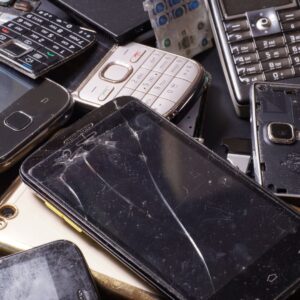
Question: How to recycle your old electronics? When you no longer use electronics, you can’t throw these items away in the trash. Instead, you must recycle them. These gadgets could contain hazardous substances like heavy metals and chemical retardants, which could pollute the earth and become harmful to animals and humans. Fortunately, a few recycling options exist. We’ll explore them here so that you can choose the right way to recycle your old electronics.
Table of Contents
Electronic Manufacturer or Retailer recycling
Various tech manufacturers or retailers have programs available where you can bring in old devices for recycling. Depending on what it is you’re getting rid of, this recycling option may or may not be the best option. Disposing of old cell phones is quite different from getting rid of a used microwave, so keep that in mind before heading to the store. Not every company will have the same stipulations, so visit their websites for more information before you bring the electronics in.
For example, Best Buy will allow every household to bring three products daily to their local stores. Again, your store may accept one electronic over another, but here are a few items Best Buy allows you to recycle: appliances, computers and tablets, ink and toner, and video games.
Go to a Recycler
Within your local community, non-profit organizations may offer a recycling drop-off, and you can bring your things to it. In smaller communities, they might have a specific day or two where you can drop off these items. Save your gadgets until those times. If this is how you plan to recycle your old electronics, we recommend contacting these locations to ensure they will take the electronics you have before immediately driving there.
Donate or Sell the Items
If your device is still in working condition, consider donating it to someone in need, an organization, or selling it to a refurbishing company. If you choose to donate the item, you could receive a deduction on the year’s taxes, but you’ll need a receipt to prove your action.
If you have an abundance of old electronics lying around the house, now is the time to start thinking of ways you can recycle them. Don’t throw them in the trash. Use our above suggestions to dispose of the items safely. If some gadgets are still working, consider bringing them to an organization or someone in need.
The Effects E-Waste Has on the Environment
Almost everyone is tied to their technology, whether it’s their computer, cell phone, or home appliances. We all rely on electronics to make our lives easier; however, these devices don’t last forever. Many people don’t know they should follow special recycling practices when it comes to electronics.
Take a look at the effects e-waste has on the environment.
Electronics Contain Toxic Materials
It’s no secret that electronics contain toxic materials and metals, but that doesn’t seem to stop some people from disposing of them with their regular trash. These materials are hazardous to the environment, and they can cause health issues or even death for humans and wildlife that come into contact with them. Believe it or not, e-waste can cause lead poisoning, which can affect your blood, nervous systems, and kidneys.
Toxic Chemicals Seep Into Groundwater and Soil
When you put old electronics and appliances in a landfill, the materials may seep into the soil and contaminate the groundwater. Once the toxic materials reach the groundwater, they’ll eventually make their way into nearby water sources such as rivers, lakes, and ponds. As a result, it may harm wildlife and make it difficult to find clean and safe drinking water.
E-Waste Contaminates the Air
Instead of disposing of electronics through e-waste removal services, people sometimes burn them outdoors. Unfortunately, this practice isn’t acceptable because it leads to contaminated air. Burning electronics releases dangerous particles into the air, which can be harmful to living organisms. Although it’s most damaging for those nearby, e-waste pollution can travel several thousand miles.
If you have any of the common types of recyclable e-waste, you should consider finding a recycling facility to take your items. Learning about the effects e-waste has on the environment is enough to make anyone want to recycle and protect other humans, wildlife, and the environmental ecosystem as a whole.






